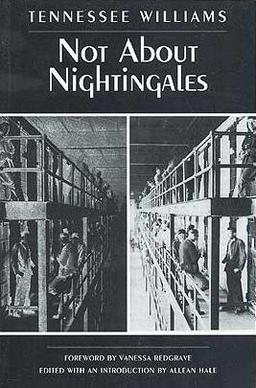
The New Mexico State Penitentiary riot, which took place on February 2 and 3, 1980, at the Penitentiary of New Mexico (PNM) south of Santa Fe, was the most violent prison riot in U.S. history. Inmates took complete control of the prison and twelve officers were taken hostage. Several inmates were killed by other prisoners, with some being tortured and mutilated because they had previously acted as informants for prison authorities. Police regained control of PNM 36 hours after the riots had begun. By then, thirty-three inmates had died and more than two hundred were treated for injuries. None of the twelve officers taken hostage were killed, but seven suffered serious injuries caused by beatings and rapes.

East Jersey State Prison is a maximum security prison operated by the New Jersey Department of Corrections in Avenel, Woodbridge Township, New Jersey. It was established in 1896 as Rahway State Prison, and was the first reformatory in New Jersey, officially opening in 1901. It housed 1,227 inmates as of 2020.

Jonathan Keith "Jack" Idema was an American mercenary and former United States Army reserve non-commissioned officer, known for his vigilante activities during the War in Afghanistan.

In 2005, The New York Times obtained a 2,000-page United States Army investigatory report concerning the homicides of two unarmed civilian Afghan prisoners by U.S. military personnel in December 2002 at the Bagram Theater Internment Facility in Bagram, Afghanistan, and general treatment of prisoners. The two prisoners, Habibullah and Dilawar, were repeatedly chained to the ceiling and beaten, resulting in their deaths. Military coroners ruled that both the prisoners' deaths were homicides. Autopsies revealed severe trauma to both prisoners' legs, describing the trauma as comparable to being run over by a bus. Seven soldiers were charged in 2005.

Fazal Hadi Shinwari was an Afghan cleric who served as the Chief Justice of the Supreme Court of Afghanistan from 2002 until 2006. He was appointed to the post by Afghan President Hamid Karzai in 8 January 2002 in accordance with the Afghan Constitution approved after the 2001 overthrow of the Taliban government. An ethnic Pashtun from Jalalabad, Afghanistan, he was a member of the Ittehad-al-Islami party. Shinwari died in February 2011 from a stroke.

Dilawar, also known as Dilawar of Yakubi, was an Afghan farmer and taxi driver who was tortured to death by US Army soldiers at the Bagram Collection Point, a US military detention center in Afghanistan.
A prison riot is an act of concerted defiance or disorder by a group of prisoners against the prison administrators, prison officers, or other groups of prisoners.

Pul-e-Charkhi prison, also known as the Afghan National Detention Facility, is a maximum-security prison located next to the Ahmad Shah Baba Mina neighborhood in the eastern part of Kabul, Afghanistan. It has the capacity to house 14,000 inmates, but as of October 2024 it only has around 5,000 inmates, most of whom have been arrested and convicted within the jurisdiction of Kabul Province. It is considered the country's largest prison.

William C. Holman Correctional Facility is an Alabama Department of Corrections prison located in Atmore, Alabama. The facility is along Alabama State Highway 21.
Abdul Rahman is an Afghan man whose arrest and trial in February 2006 sparked widespread controversy among the international community. Abdul Rahman had been arrested by Afghan authorities for apostasy and subsequently threatened with the death penalty. He had converted to Christianity from Islam while providing medical assistance to Afghan refugees in Peshawar, Pakistan. On 26 March 2006, under heavy pressure from foreign governments, the Afghan court returned his case to prosecutors, citing "investigative gaps"; Abdul Rahman was released from prison and remanded to his family on the night of 27 March. On 29 March, Abdul Rahman arrived in Italy after being offered asylum by the Italian government. Representatives within the Afghan government and many Afghan citizens continued to call for Abdul Rahman's execution, and his wife divorced him shortly after his conversion, leading to an unsuccessful custody battle for their two children.

Mullah Mohammad Fazl is a member of the Taliban militant group and the First Deputy Defense Minister of the Islamic Emirate of Afghanistan, having assumed the role on 7 September 2021. He also served in the position during the previous Taliban government (1996–2001).
Swar Khan, also known as Swatkhan Bahar, is a citizen of Afghanistan, who was held in extrajudicial detention in the United States's Guantanamo Bay detention camps, in Cuba.
The Parwan Detention Facility is Afghanistan's main military prison. Situated next to the Bagram Air Base in the Parwan Province of Afghanistan, the prison was built by the U.S. during the George W. Bush administration. The Parwan Detention Facility, which housed foreign and local combatants, was maintained by the Afghan National Army.

Not About Nightingales is a three-act play by Tennessee Williams. He wrote the play late in 1938, after reading in a newspaper about striking inmates of a Holmesburg, Pennsylvania prison in August 1938, who had been placed in "an isolation unit lined with radiators, where four died from temperatures approaching 150 degrees.".
The Sarposa Prison attack was a raid on the Sarposa Prison in Kandahar, Afghanistan by Taliban insurgents on June 13, 2008. One of the largest attacks by Afghan insurgents, the raid freed 400-1,000 prisoners. As of 2008, prison administration was overseen by Abdul Qabir.
Kandahar Central Jail, also known as Sarpuza Prison, is a minimum-security prison in Kandahar, Afghanistan. It is located next to the Kandahar-Herat Highway in the Sarpuza neighborhood, which is between the neighborhoods of Mirwais Mena and Shahr-e Naw, in the western part of the city. Its current warden is Sayed Akhtar Mohammad Agha Hussaini.
Jawed Ludin is a former Deputy Foreign Minister on Political Affairs of Afghanistan. He was appointed on 2011, by President Hamid Karzai. He was Ambassador of Afghanistan in Canada from 2009 to 2012, and had been spokesperson and later chief of staff to President Karzai.

The State Correctional Institution atCamp Hill is a Pennsylvania Department of Corrections prison in Lower Allen Township, Cumberland County, near Camp Hill in Greater Harrisburg. Its current superintendent is Michael Gourley. It has over 2,000 inmates.
Gulnaz is an Afghan woman and rape victim. She was raped by her cousin's husband in 2009 and became pregnant. She was then charged with zina, a crime in Afghanistan. She was initially sentenced to two years in jail, which was later raised to twelve, and she gave birth to a daughter in jail.
Brent Bennett is a former US Army paratrooper who was convicted by an Afghan court on 15 September 2004 for participating in torture and kidnapping, and for running a private jail in Kabul. Bennett and his associate Jonathan Idema had been operating as independent security contractors in Afghanistan, but had been representing themselves to the American and international media, members of the US military, and Afghan nationals as US government-sponsored covert operatives to track and apprehend Osama bin Laden and senior Taliban officials. The government has repeatedly denied the validity of their claims.










